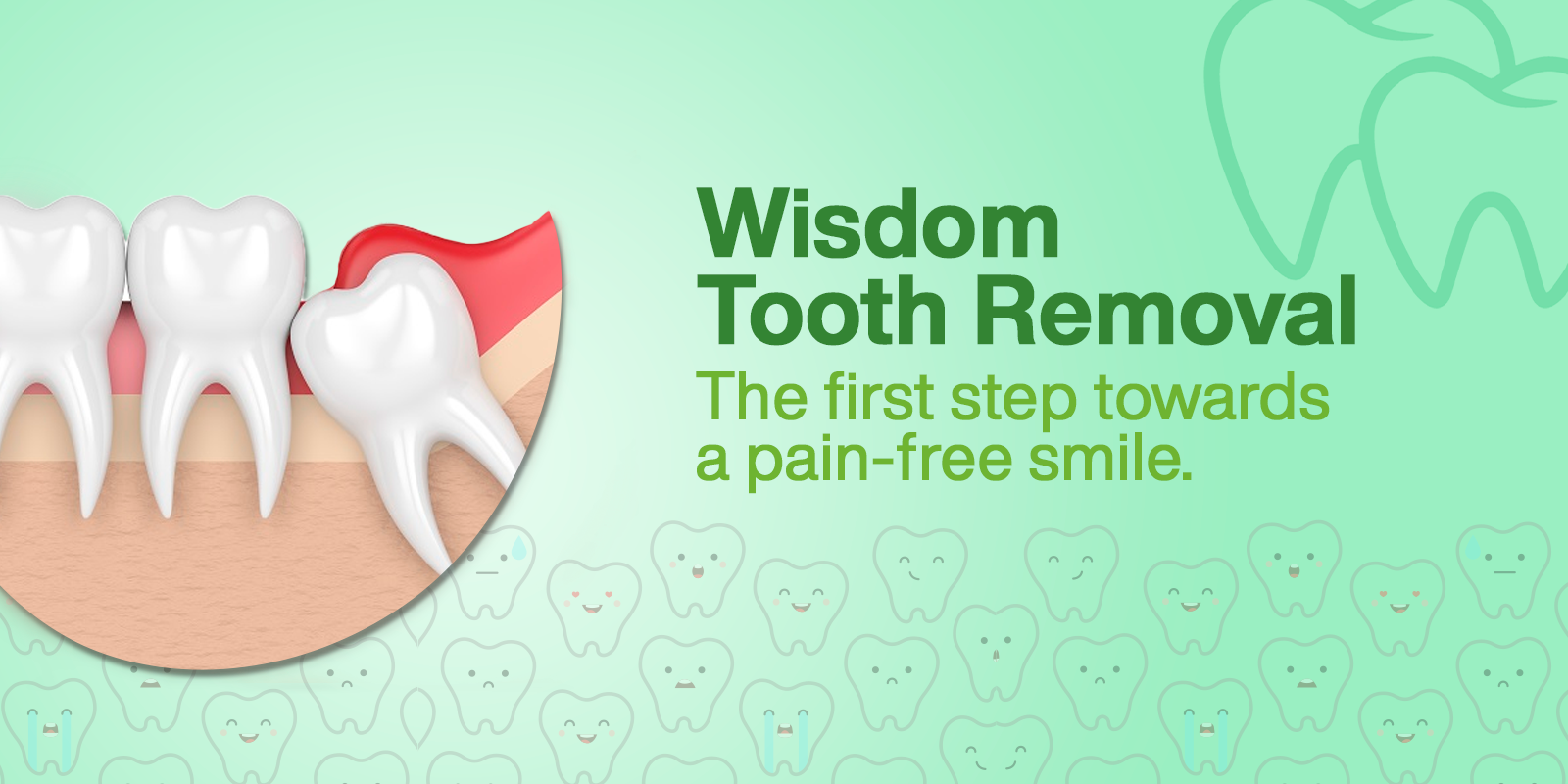
Wisdom Teeth Removal Dentist in Ahmedabad
Wisdom tooth extraction is a surgical treatment that involves the removal of one or more wisdom teeth, which are the four permanent adult teeth positioned at the top and bottom corners of your mouth. Most people have at least one impacted wisdom tooth, which means it isn't able to grow normally. You can avoid damaging the surrounding teeth and bones by having your wisdom teeth removed—either because an impaction has been discovered or because they have the potential to create problems.
When is Wisdom Teeth Removal needed?
Wisdom teeth extraction may be required if you have alterations in the area of your wisdom teeth, such as:
- Pain
- Infection of the soft tissue behind the lower end tooth on several occasions
- Sacs packed with fluid (cysts)
- Tumors
- Teeth nearby have been harmed.
- Gum disease
- Tooth decay on a large scale
Why is Wisdom Teeth Removal needed?
When wisdom teeth are kept from properly erupting within the mouth, extraction is sometimes required. They may develop sideways and partially protrude from the gum nestled in the bone. Bad wisdom teeth can assume various postures in the bone as they work to find a route that will allow them to erupt successfully.
When does a person feel he/she requires Wisdom Teeth Removal?
- You might feel some discomfort in the area.
- Bacteria enter the aperture where they break through the surface of the gums, causing infection.
- You experience swelling and discomfort in the area,
- You have an unpleasant aftertaste in your tongue.
- You experience difficulty opening the mouth, pain while biting and chewing, and tender swelling.
Process of Wisdom Teeth Removal
The procedure should take around 45 minutes. Here are the stages of a typical procedure:
- Sedation: You'll be given a small mask to put over your nose to breathe in the sedative while receiving nitrous oxide (laughing gas).
- Numbing: Your surgeon begins by numbing the wisdom teeth and their associated tissues with a local anesthetic after administering sedation.
- Tissue removal: To reach the tooth, the dentist removes any gum tissue surrounding the wisdom tooth's location.
- Bone removal: The jawbone beneath a wisdom tooth might be covered with bone. If so, a rapid handpiece is used to bore through and eliminate the bone that encompasses the tooth.
- Loosening and sectioning of the tooth: At the point when the affected insight teeth are apparent to the dental specialist, a range of surgical tools are utilized to remove any connective tissue from around them carefully. The tooth may also be removed in sections to make removal easier.
- Tooth removal: When the wisdom tooth has been loosened or completely removed, it's time to get rid of it. The doctor will make use of surgical instruments that are specifically developed to remove the tooth entirely.
- Stitches: The surgeon may use stitches to seal up the wound now that the wisdom teeth have been removed. When impacted wisdom teeth are removed or the healthcare provider believes the patient will heal better with stitches in position, this is occasionally essential.
FAQ
-
When do the stitches after wisdom teeth extraction come out?
After tooth extraction, some stitches dissolve on their own, while others are removed three to fourteen days later.
-
How can you get a good night's sleep following wisdom tooth extraction?
Pain relievers and non-steroidal anti-inflammatory drugs can help with the discomfort. To control bleeding, it's also a good idea to elevate your head over your heart for the first couple of nights.
-
What is the cost for Wisdom Teeth Removal?
The cost for the wisdom teeth removal procedure will be 2000 to 6000 INR approx.
